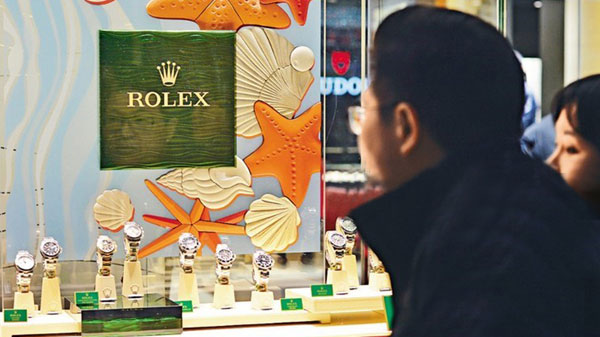The haute horology industry seemed positively relieved – nay, outright optimistic – back in May this year when the Federation of the Swiss Watch Industry (FH) revealed its latest take on the state of the precision timepiece market. This eagerly-awaited assessment of the world’s watch wants showed that Swiss watch exports had surged by 13.8 percent year-on-year, or roughly around US$1.78 billion.

More strikingly still, the report attributed this stunning turnaround to just one global premium watch market – Hong Kong. Indeed, looking more closely at the SAR’s star performance, it seems the city’s watch-wearing glitterati are now sporting 43.4 percent more premium timepieces in April 2017.
Some may wonder how a seven million-strong city could have such an impact on this global industry, but further reading makes it seem hardly far-fetched at all. In fact, Asia’s World City has long been the single-largest importer of Swiss watches, accounting for over 20 percent of the total market.

But why this latest report has been greeted with such rapture? Well, while the Swiss watch industry has continued to ceaselessly talk itself up, it’s the first indication in two years that exports have shown any sign of sustainable growth.
2015 was the last truly golden year for the Swiss watchmaking industry, when it boldly expanded into new markets, grew its existing export sectors and watched revenue levels climb to unprecedented heights. Then, within 12 months, everything fell apart on a global basis. Exports took a year-on-year 11 percent nosedive, with their value falling from US$21.75 billion to 19.6 billion.

In truth, the causes of this particular downturn were many and varied. In simple terms, the world suffered a massive crisis in economic confidence, with the ongoing China-Russia-US tensions and escalating global terrorism all playing their part. Closer to home, the Chinese government’s new emphasis on austerity and its clampdown on public sector gift-giving triggered the meltdown of Hong Kong’s watch-buying economy.
Within the industry itself, many well-established Swiss brands suddenly found themselves competing with smartwatches, with these heavily-promoted, multi-function digital accessories targeted at exactly the same demographic – affluent, aspirational men who saw themselves as style leaders.

The combined impact of these varied elements was devastating for Hong Kong. While, in 2015, the city imported some US$3.2 billion worth of Swiss watches, within a year this had dropped to US$2.4 billion. This was largely down to local consumers feeling the financial pinch and mainland buyers shunning anything that suggested conspicuous consumption.
Against such an apocalyptic backdrop – and despite doom-laden prognostications to the contrary – it now seems the Swiss watch industry has not only regained a sound financial footing, but also looks poised for long-term growth. Just as Hong Kong led the 2015 downturn, it is now credited with being at the forefront of the recovery, with its April 2018 figures marking the city’s largest month-on-month rise in more than six years.

According to Deloitte, the London-headquartered consultancy giant, the Swiss watch industry’s renaissance is largely down to the robust export performance of many of its most high-end timepieces. Again, this matches the profile of the typical Hong Kong precision watch purchaser. Such items have long been among the city’s most coveted status symbols.
While it’s the resumed good fortune of the Swiss watch industry that stole many headlines, another equally striking story got somewhat eclipsed. Closer examination shows that it’s not just Geneva-sourced wrist-candy that are suddenly selling well in HK. In fact, the city’s retail sector as a whole posted an 11.4 percent upturn in March this year, the biggest monthly jump since 2013, with jewellery, premium gifts and more all on the up-and-up.

The unreported story, then, is that luxury shopping is once again surging in Hong Kong, with Swiss watch sales more an indicator of the city’s improved economy rather than some untoward freak phenomenon. As a sign of its style setting influence – certainly on a regional basis and, arguably, at a global level too – the re-ignition of its long-standing love affair with fine Swiss timepieces seems to have opened the floodgates in many other one-time premium watch-buying markets.
All in all then, great news for the worried Swiss watch industry, but perhaps better news still for Hong Kong. As the city casts around for a role in the new world order, it’s surely gratifying that it remains a defining market for the luxury sector and a benchmark for consumers across the world.
Text: Tenzing Thondup
Images: AFP



